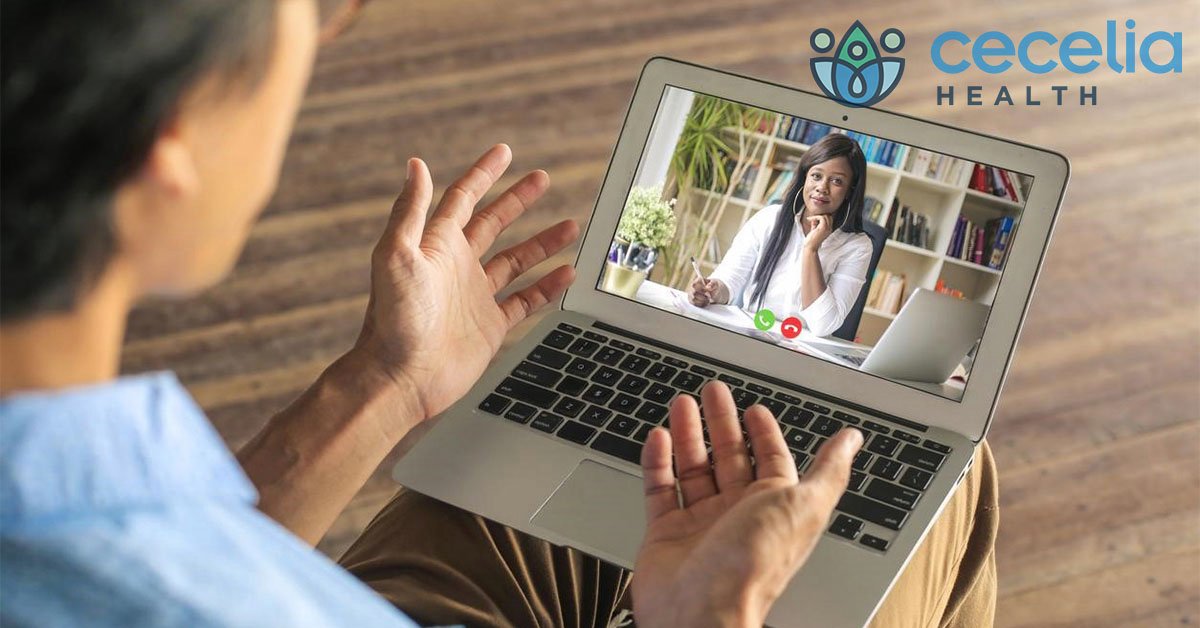The digital health market grew six times in size between 2015 and 2018. This exponential growth is a clear indication that consumers’ adoption of digital health tools will continue to increase. While there are many direct to consumer offerings on the market today, organizations like health plans, self-insured employers, and pharma companies should understand the difference between the two leading options: human-centric virtual coaching and app-based support. Consumers and business should understand the pros and cons of each approach before selecting a program.
Here are a few reasons why you should consider proactive virtual coaching:
Individualized Attention and Support
Both virtual health coaching and digital apps offer great convenience for working adults with busy schedules. Compared to apps, virtual coaching features a human-centric approach that focuses on the healthcare needs of the patient. In essence, patients will receive individualized attention from the healthcare provider, a factor that promotes accurate diagnosis and delivers superior results. Holistic health coaching will ensure patients get the highly personalized emotional and companionship support they need to manage their conditions. Human interaction also helps build relationships, ensuring that patients have a feeling of comfort and a sense of belonging. Finally, this Individualized attention and support increases program completion rates.
Personalized Education
To manage chronic diseases effectively and achieve superior outcomes, patients must comprehend their conditions. Understanding their conditions allows patients to know their risk category and what it means and helps them understand the impact of behavior change on their quality of life. Apps rely majorly on technology, while virtual coaching combines technology and the expertise of healthcare professionals. This approach makes it easy to provide informational support and solve problems for client-specific issues. The human touch associated with the process allows patients to ask questions and get advice, which helps them understand their condition better.
Customized Program Specific to a Patient’s Personal Goals
The unique needs of different patients require customized programs that are specific to the individual’s goals. Proactive virtual coaching is flexible and provides room for adjusting a treatment plan to suit the needs of the patient. The healthcare expert will listen to the patient, understand their needs, and involve them in creating a health experience that blends easily into their daily life. Virtual coaching eliminates the need for patients to go to a physician’s office for the initial and follow-up sessions. Such convenience enables patients to engage on their own terms and schedule, making it easier to keep up with the program.
Patient Engagement
Patient behavior change is key in chronic disease management. However, behavior change can be a complicated and difficult process when not done correctly. Professionals need to work closely with patients when it comes to managing chronic diseases. Increased online patient involvement can result in a 90 percent satisfaction rate for both patients and physicians. Compared to apps, working with a live Certified Diabetes Care and Education Specialist (CDCES) will improve engagement to ensure that patients take an active role in improving their health. Virtual health coaching provides an opportunity for patients to participate in decision making, a factor that helps to achieve the desired results faster.
Accountability
The journey to managing chronic health conditions and building healthy habits can be tough. It is common for patients to feel overwhelmed and want to give up along the way. To achieve the set goals within the desired period of time, it is important to have a human coach to help you stay on track. Human-driven virtual care allows participants to benefit from having an objective and non-judgmental person to hold them to account. As much as apps can send prompts and reminders to patients, being accountable to someone keeps patients more focused on achieving their goals. In the end, there is a higher chance of achieving superior results.
Regular and Effective Communication
When looking for answers, advice, and support, most patients will want to talk to a real person. As such, even apps that provide information will not be effective in delivering high patient satisfaction. Human-centered virtual health coaching uses technology that allows patients to talk to a healthcare provider and put a face to the voice. This human to human connection helps build trust and ensure patients feel safe enough to open up on sensitive matters like sleep patterns, nutrition, exercise, weight management, and emotional health issues. Constant communication between healthcare experts and patients will help in creating an effective treatment and care plan.
Encouragement
Most patients, especially those who suffer from long-term conditions, will want to feel heard and understood. Patients who access healthcare through digital apps will get the information and guidance they need but may not enjoy the human connection that comes with talking directly to a health coach. On the other hand, human-driven virtual coaching and care ensure that professionals listen to patients well, making them feel accepted and providing the encouragement they need. Constant encouragement helps physicians and patients to achieve superior results, making virtual coaching a better option than apps.
Tracking and Insights
Digital health tools allow healthcare providers to collect data and obtain insights into the status of the patient. These insights help the experts to track disease progression and find effective ways of managing it. The human interaction associated with virtual health coaching allows medical professionals to obtain the patients’ medical history. The experts will understand the challenges that patients face in their journey, putting them in a position to recommend effective solutions for the problems. Unlike digital apps, a virtual health coach will create a holistic picture of the patient’s life and make changes to the treatment plan for superior results.
Management of Chronic Diseases
Both digital apps and proactive virtual coaching can help in managing chronic diseases. However, considering the numerous advantages that virtual care offers, a human-driven approach will be more effective in enabling patients achieve their personal goals. Virtual care makes it possible to address underlying issues and encourage behavior change. The approach is a better way of reaching unmanaged populations that most apps cannot. Virtual care also enables healthcare providers to get to hard-to-reach patients, effectively reducing the risk of health complications arising from unmanaged conditions. In the end, combining human health coaches with technology will result in better health outcomes.
When it is human-centered, virtual health coaching can be an effective way of providing healthcare services. However, you should work with experienced health care professionals if you are to manage your condition and enjoy these benefits. Cecelia Health is committed to delivering a personalized, technology-based approach to improving health outcomes for people with chronic conditions. The good news is that our human-centric approach and the apps from digital-first companies can coexist since each is suited for a different subset of people with long-term conditions.
Would you like to learn more?
About the Author

Blake is responsible for Cecelia Health’s market expansion and sales within the payer market. As a sales leader, Blake has more than 20 years of sales experience focused on healthcare technologies and equipment. He believes in a consultative approach to building partnerships that favorably impact the clinical, operational, and financial success of his customers. Having worked in environments ranging from new surgical technology start-ups to large multinational public and Fortune 500 ranked companies, Blake understands the value of being a true partner with his customers. He believes in building business relationships that benefit all parties involved but most importantly the member or patient. Prior to joining Cecelia Health, Blake held several sales contributor and leadership positions serving customers across the healthcare continuum to include providers, payers, and medical device manufacturers. He has a strong background in delivering profitable business with a focus on positive outcomes for his customers. Blake is a graduate of Georgia State University- J. Mack Robinson College of Business, and is an active member of several professional associations, which include HIMSS and AHIMA. Blake is an active member and leader in his local BSA den and coaches baseball and soccer in the community. Blake is the proud husband of Laurel and father to Harrison, Noble, and Davis.
Get in contact with Blake:
Email: bbutler@ceceliahealth.com
LinkedIn: Blake Butler
